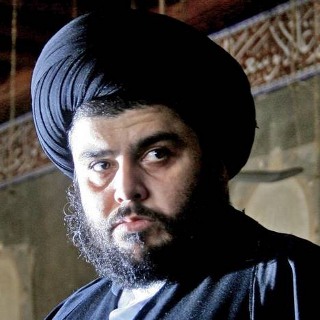Despite having floated the idea of a referendum only four days ago, the political bloc loyal to Moqtada al-Sadr has organized a major nationwide vote with almost impossible alacrity, and Iraqis left Friday morning prayers to the hastily assembled tents to cast their vote.
 The election has no sanction or aid from the Iraqi government, and will last for two days. Already the party has reported very good participation and media outlets have seen long line at the tents.
The election has no sanction or aid from the Iraqi government, and will last for two days. Already the party has reported very good participation and media outlets have seen long line at the tents.
With five candidates to choose from and a space to write in a sixth, the voters will decide who Sadr’s bloc, and likely the entire Iraqi National Alliance (INA), will support as the next prime minister. Sadr issued a statement today with his reasoning behind the referendum, saying that it was possible the bloc might make a “mistake” in choosing the next prime minister and so they decided to assign that responsibility directly to the Iraqi people.
With Ayad Allawi’s Iraqiya bloc and Nouri al-Maliki’s State of Law in a near deadlock after the vote, neither can form a government without the support of the third place INA. In addition to Allawi and Maliki, voters will also have the option to choose INA member and Vice President Adel Abdul-Mahdi, former Prime Minister Ibrahim al-Jaafari, and Sadr’s cousin, State of Law member Jaafar Mohammed al-Sadr, who has frequently been presented as a “compromise” candidate.
State of Law is seen as a more natural ally, as a fellow Shi’ite religious bloc which also maintains close ties to Iran. Yet there looks to be some dissent within the INA over the possibility of siding with Maliki, as SIIC leader Ammar al-Hakim announced today that his party, a member of the INA, would not join any government which did not include Allawi. The prospect of an INA breakup could seriously delay the formation of a new government, already expected to stretch into the summer and possibly beyond.


